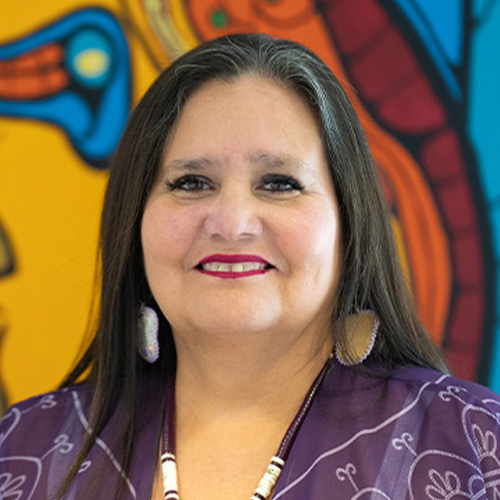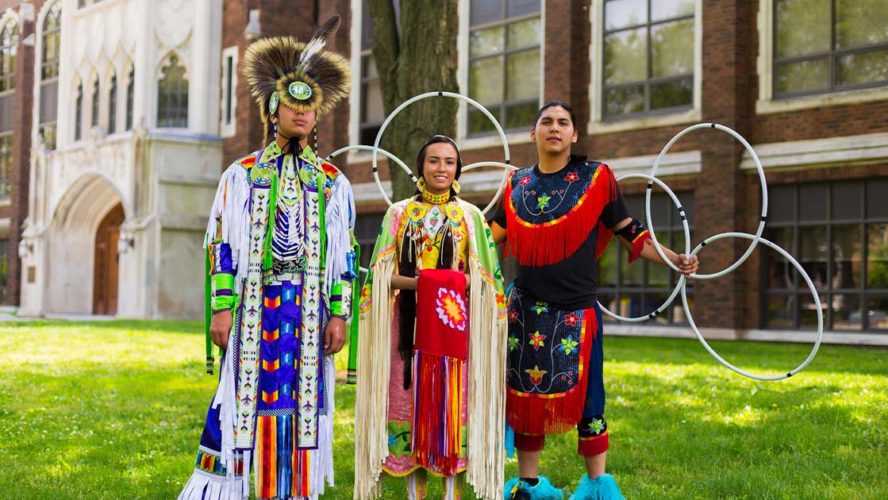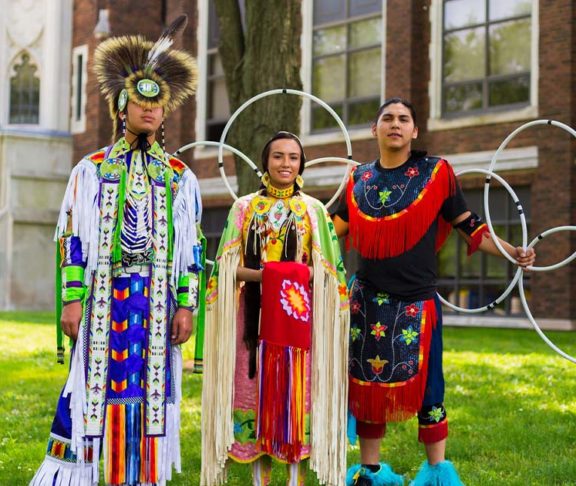When it comes to creating community and cultural safety for Indigenous students, the University of Windsor is leading the way.
In January 2022, Dr. Beverley Jacobs stepped out of her role as Associate Dean (Academic) in the Faculty of Law to become Senior Advisor to the President on Indigenous Relations and Outreach at the University of Windsor.
In her new role, Dr. Jacobs is working with the University of Windsor’s governance and executive leadership to embed Indigenous knowledge and perspectives into the university’s culture. She’s also looking to enhance supports and services for Indigenous students and helping guide the development of the university’s new Indigenous spaces on campus.
“This is a huge step that the University of Windsor has taken toward reconciliation,” says Dr. Jacobs. “The university leadership and the faculties are on board and moving quickly and thoughtfully with Indigenizing and decolonizing the institution.”
More ways than ever to provide sense of community to Indigenous students

Dr. Beverly Jacobs
Senior Advisor to the President on Indigenous Relations and Outreach, University of Windsor
This means providing Indigenous students coming from their homes, families, and territories with a sense of cultural safety and community on a more just, welcoming, and equitable campus. “A lot of these students are young parents or older, mature students with families, so we want to make sure they have all the supports and services they need to be successful during their time here,” says Dr. Jacobs.
The Aboriginal Education Centre — Turtle Island at the University of Windsor, for example, holds various student alliance activities, promoting Indigenous culture on campus and educating non-Indigenous students on who they are. “We also recently hired an Indigenous Enrolment Advisor whose job is to ensure that Indigenous learners are looked after throughout their enrolment journey, providing a personal touch from the point of introduction to the University of Windsor through the enrolment process, and making sure they have access to supports they may need right through to graduation,” says Dr. Jacobs.
Integrating Indigenization into curriculum
In keeping with the findings of the Truth and Reconciliation Commission of Canada and the Universities Canada principles on Indigenous education, the University of Windsor hired five faculty members who self-identify as First Nations, Métis, or Inuit in 2017. This is known as the President’s Indigenous Peoples Scholars program. One of the program’s mandates is to enhance Indigenous educational leadership at the university and foster greater intercultural engagement among Indigenous and non-Indigenous students, faculty, and staff. “Working together, they helped to create a minor in Indigenous Studies, which is open to all interested students,” says Dr. Jacobs.
We have more ways than ever to provide Indigenous students who are coming from their homes, families, and territories with a sense of cultural safety and community.
There’s a wide range of financial awards, including several internal scholarships and bursaries open to University of Windsor Indigenous students. “Given that Detroit is right across the river from us, we’ve also recently started working with some U.S. universities to establish scholarships for Indigenous students who live in the U.S. and wish to study here,” says Dr. Jacobs.
Finally, new buildings for the Faculty of Education and the Faculty of Law, plus a new sports and recreation complex, are all incorporating Indigenous protocols and teachings into the buildings’ designs and features. “This will help further enhance the sense of community for our Indigenous students during their educational pursuits at the University of Windsor,” says Dr. Jacobs.




